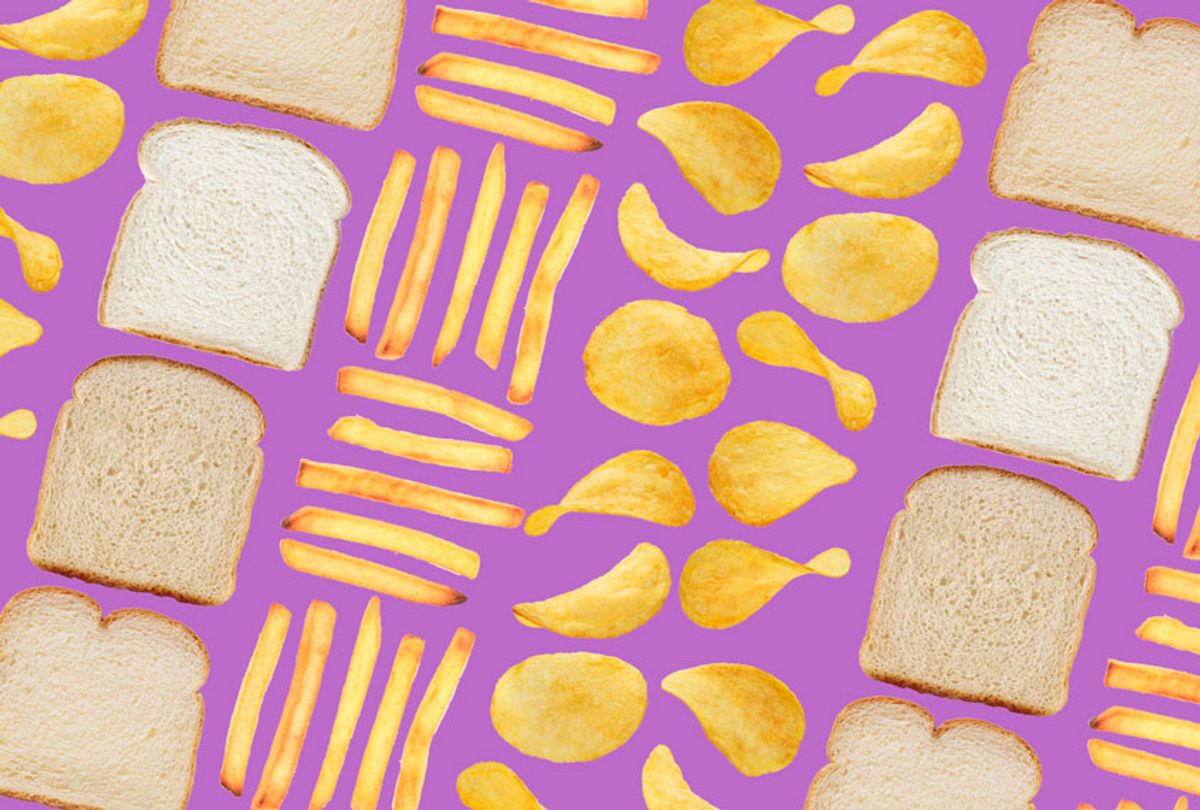A teenager's strict diet of french fries, potato chips and white bread slowly caused him to permanently lose his eyesight, according to a case study published in a medical journal.
Scientists from the University of Bristol examined the case of a young patient whose extremely picky eating is believed to have caused his blindness — and have sounded the alarm on the dangers of a poor diet.
The unidentified patient told doctors he consumed a limited diet of french fries, potato chips, white bread and some slices of processed meat since elementary school. The young boy also avoided foods with certain textures. He first visited his general practitioner at age 14, complaining of tiredness, according to a case report published in the Annals of Internal Medicine on Monday.
The teen was not taking any medication; had a normal BMI and height; and showed no visible signs of malnutritions. Doctors discovered that he had low levels of vitamin B12 and anemia, and he was treated with vitamin B12 injections and offered dietary advice.
A year later, the patient experienced hearing loss and difficulty seeing, but doctors did not find the cause.
By the time the patient reached 17, his vision had worsened to the point of blindness, according the report. Further investigation revealed that the patient had vitamin B12 deficiency; low copper, Vitamin D and selenium levels; a high zinc level; and reduced bone mineral density. At this point, the patient's vision was permanently impaired.
Researchers from Bristol Medical School and the Bristol Eye Hospital examined the case and concluded that the patient's "junk food" diet and "limited intake of nutritional vitamins and minerals" resulted in the onset of nutritional optic neuropathy, a dysfunction of the optic nerve.
In developed countries, nutritional optic neuropathy is mostly caused by bowel problems or medication that interferes with the absorption of nutrients, the researchers noted. The condition is rarely caused entirely by an unhealthy diet, because nutritious food is readily available.
Elsewhere in the world, poverty, war and drugs are linked to higher rates of nutritional optic neuropathy, the researchers said.
If caught and treated early, the condition is reversible. If left untreated, however, it can lead to blindness.
"Our vision has such an impact on quality of life, education, employment, social interactions and mental health," said Dr. Denize Atan, the study's lead author and an ophthalmologist at Bristol Medical School and Bristol Eye Hospital. "This case highlights the impact of diet on visual and physical health, and the fact that calorie intake and BMI are not reliable indicators of nutritional status."
The researchers said a poor diet and limited intake of vitamins and minerals caused vision loss in this case. They warned that nutritional optic neuropathy could become more widespread due to the regular and widespread consumption of junk food around the world. And they further noted that the "growing popularity of veganism" could contribute to the condition's prevalence "if the vegan diet is not supplemented appropriately to prevent vitamin B12 deficiency."
To prevent similar conditions from happening, doctors should ask patients about their dietary history as part of routine clinical examinations, the researchers advised.
"This may avoid a diagnosis of nutritional optic neuropathy being missed or delayed as some associated visual loss can fully recover if the nutritional deficiencies are treated early enough," they said.

Shares